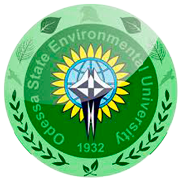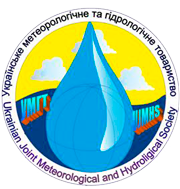Calculation of wind speed in the 300-meter lower layer of the atmosphere based on the meteorological observations taking account of temperature stratification and surface roughness
Abstract
Introduction. Taking into account relationship of wind profile power-law exponent (m) from hydrostatic stability of the layer and surface roughness the calculation method of wind speed and direction in the lower 300-meter layer of the atmosphere based on the meteorological observations is proposed.
Problem. For many applied engineering problems, for example, for the design of high-rise construction and operation of wind power plants the wind and temperature profile data in the lower 300-meter layer are required. In the design, the main objective is to determine the peak wind loads and influences on objects.
Research methods. The calculations were carried out using the energy-balance model of the atmospheric surface layer, SLEB, based on standard meteorological information. The model is built on the basis of Monin-Obukhov similarity. To determine spatial variability of wind and temperature hydrostatic stability of the atmosphere and the dynamic properties of the underlying surface are taken into account.
Purpose. The aim of the study is to develop a method of calculation of changes in wind speed and direction in the lower 300-m layer of the atmosphere using the wind profile power law based on the standard surface meteorological information.
Results of the study. Relationships of non-dimensional wind profile power-law exponent from hydrostatic stability of the layer and surface roughness, obtained with the SLEB model, allowed building function graphics for different observation times and months. All calculated values agree with the known experimental and theoretical data very well.
References
2. Hrgian A.H. Fizika atmosfery [Atmosphere Physics]. Leningrad: Gidrometeoizdat Publ., 1978. 156 p.
3. Hellmann G. Ober die Bewegung der Luft in den unteresten Schichten der Atmosphare (2 M itt). Met. Zs., 1917, bd. 34, h 3. pp. 140.
4. Irwin J.S. A theoretical variation of the wind profile power law exponent as a function of surface roughness and stability. Atmospheric Environment, 1979, no. 13, рр. 191-194.
5. Kobysheva N.V. (Executive Ed., prof.). Rukovodstvo po specializirovannomu obsluzhivaniyu ekonomiki klimaticheskoy informatsii, produktsiey i uslugami [Guide on special purpose service of economy with climate information, products and facilities]. SPb., 2009. 336 p.
6. Voloshin V.G., Vorotnitskaya A.V. Otsenka ustoychivosti pogranichnogo sloya atmosfery po dannym meteorologicheskikh setevyh nablyudeniy [Estimation of the stability of the atmospheric boundary layer based on the weather observations]. Meteorologiya, climatologiya i gidrologiya – Meteorology, climatology and hydrology, 1978, no 14, pp 10-17.
7. Voloshin V.G. Metod rascheta turbulentnykh potokov i temperatury podstilayushchey poverkhnosti na osnove meteorologicheskikh nablyudeniy [The method of calculation of turbulent fluxes and the surface temperature based on the weather observations]. Meteorologiya, climatologiya i gidrologiya – Meteorology, climatology and hydrology, 2002, no 46, pp. 83-89.
8. Voloshin V.G. Dinamicheskaya model' zagryazneniya atmosfery s meteorologicheskim preprocessorom [A dynamic model of air pollution with the meteorological preprocessor]. Odessa: Ecology Publ., 2013. 295 p.
9. Stepanenko S.N., Voloshin V.G., Kuryshina V.Yu. Energo-balansovaya model prizemnogo sloya atmosfery [Surface Layer Energy Balance]. Ukr. gìdrometeorol. ž. – Ukrainian Hydrometeorological Journal, 2011, no. 9, pp. 38-59.
10. Monin A.S, Obuhov A.M. Osnovnye zakonomernosti turbulentnogo peremeshivaniya v prizemnom sloe atmosfery [Basic laws of turbulent mixing in the atmospheric surface layer]. Trudy Geofizin. AN SSSR – Proceedings of Geo-physical Institute of the USSR Academy of Sciences, 1954, vol.24, pp. 163-187.
11. Byzova N.L., Ivanov V.N., Garger E.K. Turbulentnost' v pogranichnom sloe atmosfery [Turbulence in the atmospheric boundary layer]. Leningrad: Gidrometeoizdat, 1989. 264 р.
12. Zilitinkevich S.S., Monin A.S. Teoriya podobiya dlya planetarnogo pogranichnogo sloya atmosfery [The similarity theory of the planetary atmospheric boundary layer]. Izv. AN SSSR. Fizika atmosfery i okeana – Proceedings of the Academy of Sciences of the USSR. Physics of Ocean and Atmosphere, 1974, vol. 10, no. 6, pp. 587-599.
13. Holtslag A.A. Modelling of Atmospheric Boundary Layers. Royal Netherlands Academy of Arts and Sciences. Amsterdam, 1998, рр. 85-110.
14. Tennekes H. The logarithmic wind profile. Journal of Atmospheric Science, 1973, vol. 30, pp. 234-238.
15 Blackadar A.K. The Vertical Distribution of Wind and Turbulent Exchange in a Neutral Atmosphere. J. Geophys. Res., 1962, vol. 67, рр. 3095-3102.
16.Touma J.S. Dependence of the wind profile power law onstability for various locations. Journal of the Air Pollution Control Association, 1977, vol. 27 (9), pp. 863-866.
17.Borisenko M.M. Zavisimost' vertikal'nyh profiley skorostivetra ot temperaturnoy stratifikatsii [Relationship of vertical wind speed profiles from temperature stratification]. Trudy GGO – Proceedings of Central Geophysical Observatory, 1967, vol. 210, pp. 21-29.

This work is licensed under a Creative Commons Attribution 4.0 International License.





